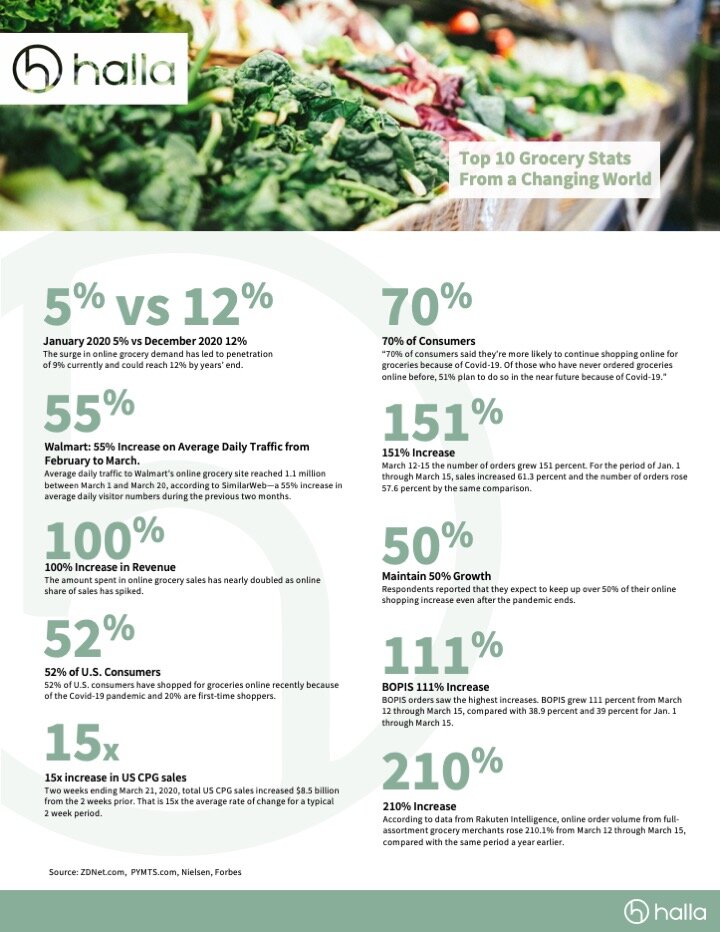Remember shopping online for groceries before COVID? The answer to this question for many would-be “no”. But with the stay-at-home orders and people sheltering in place most people have now become intimately familiar with buying their groceries online. In fact, 70% of consumers said they’re more likely to continue shopping online for groceries because of the pandemic (source: zdnet.com). We’re reaching a new normal and online grocery, which used to be second in command to shopping in-store, is catching up. Check out the stats below that we collected from ZDNet.com, PYMTS.com, Nielsen, & Forbes that show just how much the demand for online grocery has grown and is forecasted to grow in the next year. With all this demand, grocers are feeling the pressure to deliver an experience online that will keep customers coming back and not switching stores.
A friend of mine was recently waxing poetic about his butcher at his local grocer. He missed being able to point at a cut of meat in the case and ask a question about it. And simple things like being able to say how thick he wanted his steak cut seems like a luxury now. He also mentioned the helpful produce associate who was always sharing tips about how to tell if an avocado was ready or which peaches were perfectly ripe.
Now when my friend shops online he is swimming in a sea of SKUs and unknowns. We all are hoping that we can go back to the way things were before the pandemic, but the reality is that the shopping experience (both in-store and online) is going to be much different than it was before COVID. How do we bring the best parts of shopping in real life, that personal connection and attention, to shopping online?
Grocers need to meet people where they are and provide an experience that takes into account each individual shopper’s unique tastes, habits, dietary preferences, household, etc.
With Halla the online shopping experience is a lot like shopping in-store with a guide that recognizes your individuality, pointing you towards your favorite items, offering personalized substitutions, and suggesting products you never knew you’d love.
We call it “Taste Intelligence, but you can call it your “secret ingredient”.


